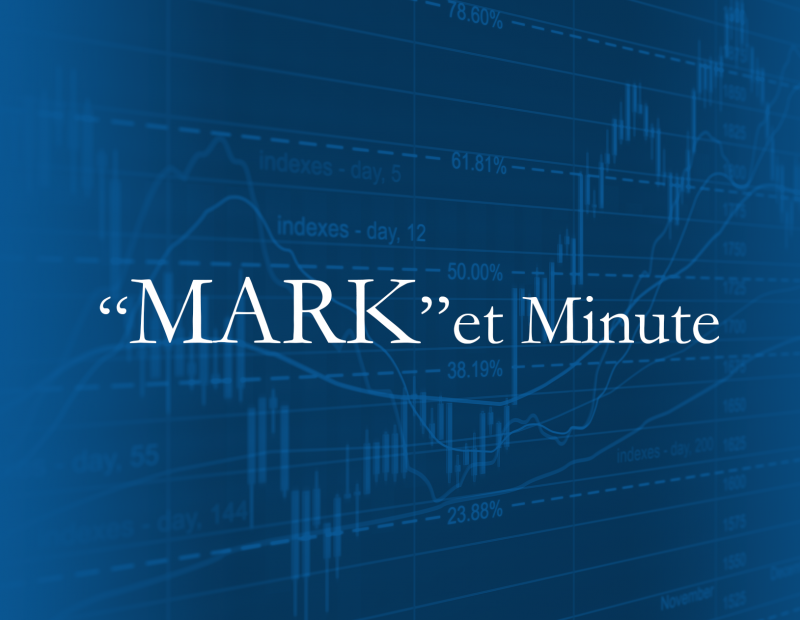Hello and happy Monday to everyone,
Voting is open now. Official election day is next Tuesday, November 3rd, which is only 2 weeks away. Certain voting centers are open in your county this week Monday-Saturday if you plan on voting in person. Check your local area for times and locations. We encourage everyone to vote. Me personally, I plan to wear gloves and a mask and vote in person. This year is expected a record number of mail in ballets. I think this is very logical with all the concerns of Covid-19. This Thursday is the last debate between President Trump and Joe Biden. I hope this one is more civil and respectful to each other and the moderator.
Regarding your accounts, PLEASE READ: For months, leading up to this election, we have spoken to many of you on your scheduled reviews. Some of you have expressed serious concerns about the results of the election and what that means to the stock market from your perspective. Of course, we know that there isn’t a crystal ball on this. As a reminder, if you want to be invested more into the stocks or, if you want less in stocks or, or no stocks at all, please call us so we can process your request. This is your money, and we want to honor your requests. You may be right, or you may be wrong. Only time will tell. For everyone else, we continue to closely monitor the situation daily looking for opportunities to buy or to sell for the best interest of your accounts.
We still expect the next stimulus to be announced soon. When that will be and details it involves have yet to be released. Analysts would expect the announcement to come before the election, as that would assist President Trump for his re-election.
I also want to thank everyone for the continued praise and compliments you give us for these Monday emails. I personally put in approx. 4 hours every Monday to prepare the emails, and that doesn’t count the time my team sets aside to find the information daily to send to me. I know these emails are long. We have clients that will read this from beginning to end, and some will not read it all, and some clients who read certain sections they prefer. Up to you, we simply want to make this information available and easy to access. I hope to stop these emails sooner than later but as we continue to be in such a unique time in history we feel client education is very important. The news on the TV and the internet is selling drama. The more viewers, the more money they make in selling commercials. Our information we share in these Monday emails is coming from analysts and economists. No product selling, just facts. This lite blue section is my words (Mark Roberts), but the rest of the email is copying and pasting from various sources, then approved by compliance to share with our clients
Upcoming dates to note:
Thursday 10/22 Round 3 of Presidential Debate
Performance DJIA:
Mon 10/12 +0.88%
Tues 10/13 -0.55%
Wed 10/14 -0.58%
Thurs 10/15 -0.07%
Fri 10/16 +0.39%
Last week +0.07%
Since 2/19 market high -2.51%
Tid Bits:
CNBC: Dow futures climb amid stimulus hopes, but rising coronavirus cases cap upside
U.S. stock futures advanced early Monday as investors hoped for a stimulus deal from Washington, although a rising number of Covid-19 cases dampened sentiment.
House Speaker Nancy Pelosi’s office said Saturday evening that she is giving the Trump administration 48 hours to reach an aid deal before the Nov. 3 election. Pelosi and Treasury Secretary Steven Mnuchin continued their discussions over the weekend. They agreed to speak again on Monday.
Meanwhile global coronavirus cases hit 40 million on Monday, which put a damper on bullish sentiment.
A CNBC analysis of Johns Hopkins University data showed Covid-19 cases were growing by 5% or more in 38 states as of Friday. Nationwide, the daily case average has risen by more than 16% on a week-over-week basis to nearly 55,000. New coronavirus infections in Europe are rising by about 97,000 per day, up 44% from the prior week.
“The many cross-currents we have been fretting over in recent weeks remain omnipresent,” said Sherif Hamid, a strategist at Jefferies, in a note. “The US elections are close at hand, fiscal stimulus remains a key near-term potential catalyst, and developments on the virus front remain critical to the longer-term outlook.”
“A lot is very likely to happen over the next several weeks, and the broader macro picture could thus change pretty massively depending on developments along all of those fronts,” Hamid added.
On the earnings front, IBM is slated to release its latest quarterly results after the bell on Monday. Meanwhile, Federal Reserve Chairman Jerome Powell is scheduled to speak Monday morning.
CNBC: ‘Nightmare’ U.S. stock valuations driven by ‘young, dumb’ investors, fund manager says.
At present, investors are paying 22 times forward earnings to purchase stocks on the S&P 500, 50% higher than the 10-year average valuations across the index.
Much of the market rally which took the U.S. benchmark from correction territory in March to an all-time high in August was driven by tech megastocks and a bullish options market.
U.S. equity valuations have become a “total nightmare” fueled by “young and dumb” investors, according to Cole Smead, president and portfolio manager at Smead Capital Management.
The forward price-to-earnings (P/E) ratio divides the current share price of a company by its estimated future earnings per share (EPS).
He added that current valuations were an example of “stock market failure” driven by millennials speculating in the stock market for the first time. Smead projected that markets could be in for a nosedive since despite its monetary policy shoring up credit markets, the Federal Reserve “can’t save a stock market.”
CNBC: Hackers look to buy brokerage log-ins on the dark web with Robinhood fetching highest prices
Dozens of brokerage log-ins are for sale on the dark web with portfolios ranging in the low thousands to a half million dollars, according to security analysts and listings seen by CNBC.
Robinhood accounts tend to list at higher prices, which analysts say might suggest hackers view these accounts as easier to break into.
For just a few dollars, criminals are selling credentials for customers of E*Trade, Charles Schwab, TD Ameritrade, Robinhood and others, according to New York-based security firm Intsights. The demand has only increased during the pandemic, according to the firm’s chief security officer Etay Maor.
The Securities and Exchange Commission issued a notice to brokerage firms in September describing these types of attacks and specifically highlighted credential sales on the dark web. The Treasury Department Financial Crimes Enforcement Network, or FINCEN, said there have been more than 60,000 reports of identity-related cyber crime since February. Each month during the pandemic, the agency said it is seeing roughly $1 billion worth of financial crimes.
Locked out, ‘no one to call’: CNBC spoke to four Robinhood users who said they were recently locked out of their accounts, and some claimed their portfolios had been drained. The clients said they couldn’t determine whether it was the result of their credentials being used from the dark web, or phishing. But they described frustration in their communication with Robinhood.
Jason Albert, a special education teacher from Steelton, Pennsylvania, said he built his portfolio up to $10,000 since joining Robinhood in January. Albert said his account was compromised in May after noticing what he described as “strange things,” such as his balance dropping by $1,000. The fifty-year-old school teacher said he had not been refunded.
***********Affinity Client NetX portals do not have a trade or withdrawal function that can be used if a hacker gains entry
Facts:
Coronavirus
Global 40,366,534 cases 1,119,455 deaths
US 8,388,013 cases 224,732 deaths (+2.29%, +5,026 increase from last week)
KS 72,231 cases 860 deaths
MO 162,042 cases 2,679 deaths
Highlights from analysts and economics
From JP Morgan
Notes on the Week Ahead
Turbulence defines today’s investment environment, with great waves of uncertainty surging from the pandemic, the election, fiscal policy and a slowdown in what had been, to this point, a sharp recovery from a very deep recession. But amidst the tumult, investors should not neglect the crucial role of interest rates. The waves of uncertainty should fade in 2021 and, as they do so, the primary role of interest rates in determining asset class returns should reassert itself.
For this reason, even in this very noisy environment, investors should pay attention to the Federal Reserve’s latest pronouncements on monetary policy. In particular, it’s important to understand what Fed officials have said about the conditions under which they might raise short-term interest rates, taper bond purchases and eventually move away from an accommodative policy. It is also worth exploring the rationale behind this timetable. However, from a practical perspective, it is perhaps most important to ask if some of those conditions could be met earlier than the Fed and the market expect and what that might mean for short-term rates, long-term rates and financial assets in general.
In late August, the Federal Reserve announced its new policy of “average inflation targeting”. This policy is aimed at achieving higher inflation over time, in part, by raising inflation expectations in the economy. The Fed is attempting to do this by explicitly letting inflation run above its 2% target for a while to compensate for recent years when it has fallen short of this goal.
For investors, this type of environment should favor stocks over bonds. Within the bond market, it could diminish credit risk but hurt long-duration bonds. Within the stock market, it could be positive for value stocks relative to growth stocks and, in particular, favor financials because of higher net interest margins.
All of this would represent a sea-change for financial markets which have seen the best gains, on a year-to-date basis, in long-term government bonds and large-cap growth stocks. It must be emphasized that it depends on three crucial assumptions, namely, that the federal government remains in a fiscally expansionary mode after the election, that a successful vaccine is developed and distributed and that the Federal Reserve adheres to the conditional timetable it has now laid out. So while this scenario suggests that investors should prepare themselves for a steeper yield curve, the uncertainty of the outlook continues to underscore the advisability of broad diversification.
Weekly Market Recap
Last week, U.S. economic data gave investors a glimpse into how the economic recovery is unfolding. Generally speaking, the signs are conflicting: jobless claims, both initial and the four-week moving average ticked higher; retail sales figures surprised well to the upside, though the prior month’s already disappointing results were revised lower; and industrial production figures disappointed, with manufacturing output falling and capacity utilization shrinking, echoing earlier declines seen in U.S. manufacturing PMIs. Despite this overall weakness, the U.S. economy is still not at risk of a “double-dip” recession – additional large-scale shutdowns and other aggressive policy measures seen in the earlier days of the pandemic will likely not be repeated, sparing GDP from another contraction. Still, for investors, this should mean one thing: while the pace of the economic rebound was at first extreme, in the absence of a vaccine, re-opening momentum will likely continue to fade. The recession may be over but the road to recovery is a long one, and investors should continue to broadly diversify in an effort to be more defensive.
From American Century
Presidential elections often lead to volatility in the markets. But “betting” on a political outcome is difficult and potentially costly.
Markets historically go up no matter which political party wins a presidential election, so it typically pays not to try to time the election but stay invested for the long term instead.
We believe taking a balanced approach is best. Stick to your saving and investing plan despite the short-term volatility that political, economic and market conditions may bring.
The timing of this year’s presidential election feels momentous. We are amid a global pandemic and social protests in the U.S. The selection of a certain candidate or political party can result in significant changes to economic, social and environmental policies that affect particular industries or market sectors.
The political party controlling 1600 Pennsylvania Ave. isn’t likely to affect your retirement needs or the amount of money you’re saving for a down payment on a home. The levers you can pull to improve your chances of enjoying a fully funded retirement or financing a college education exist independently of the party in office.
We understand the anxiety you may be feeling as we approach the election. It’s natural, and it’s real. Market volatility increases near the time of the Democratic and Republican party national conventions through Election Day. But this volatility has historically subsided just as quickly after the election.
The U.S. Federal Reserve (Fed) has a significant effect on financial market returns and operates independently of electoral outcomes. It’s no coincidence that recovery from the February-March bear market began March 24, the day after the Fed announced extraordinary measures to support the economy and financial markets.
COVID-19 also remains a large source of market uncertainty, and the disease operates independently of electoral outcomes. Economic fundamentals drive market performance over time, not elections or the party in power. Whether we have a V-, U- or W-shaped recovery is likely to have a greater impact on financial returns than who occupies the White House.
Opportunities:
My wife Amy’s opening. Kansas City’s Newest winery. You can look her up at www.serendipityfarmandvine.com or on Facebook at Serendipity Farm and Vine.
***Open enrollment for Medicare is coming up. Here is a referral for you…
As an independent insurance agent that contracts with major carriers, I can help you decide which plan is right for YOU! Whether you are in the market for Medicare Supplements, Prescription Drug Plans, Advantage Plans, or just want to know your options, I can guide you through the process.
Community Café is Wednesday, October 21 at 8:00am for 30 minutes. Topic will be on: “5 Ways to Ensure Your Home & Other Assets are Passed Onto Your Kids”
- Will live stream on Facebook Live anyone who is friends with me on Facebook or Click Here to Follow The Community Café Facebook Page
- Invitations will go out via email with a link to join on zoom.us, plus those who are friends with me on Facebook
- Speaker this week, Attorney Glenn Stockton & Attorney Sophia Kandt both of Stockton & Stern Law
- Invitations will go out via email with a link to join on zoom.us, plus those who are friends with me on Facebook
Estate Planning Webinar Tuesday October 20 at 6:00pm & Wednesday October 21 at 12:00pm
To Register for either date please email Stacy at [email protected]
a. Pros and cons of a Will based estate plan
b. Pros and cons of a Trust based estate plan
c. Co-hosted by Glenn Stockton with Stockton & Stern Law firm
Social Security and Tax Strategy Webinar on Tuesday October 27 at 6:00pm and Wednesday October 28 at 11:00am
To Register for either date please email Stacy at [email protected]
If you would like a copy of my 30 minute recording of Community Café on the topic of “Tax saving Strategies”, please contact Stacy and we can email it to you. [email protected]
Referral rewards program:
Thank you for your time in reading these updates.
Stay safe and stay healthy,
Mark Roberts




